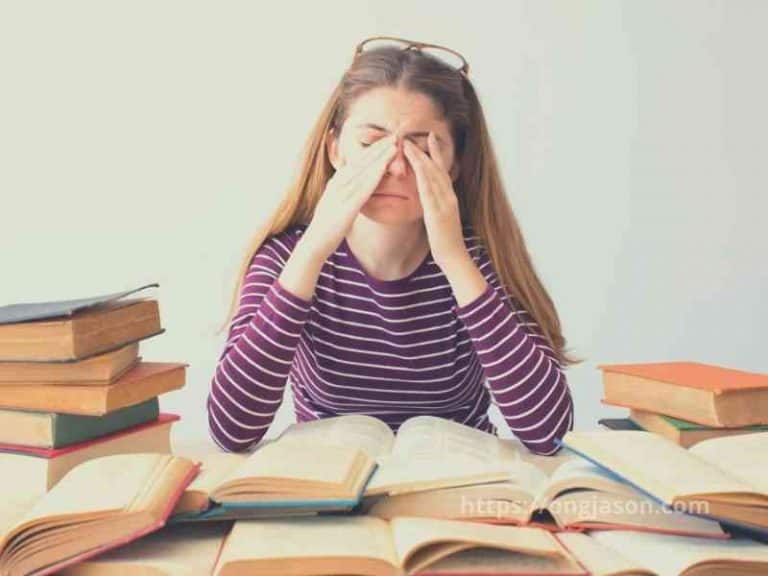Self-Reflection: How does it benefit students and teachers?
One of my regrets, when asked, is that I only learned the power of self-reflection a few years after graduating. Even though I was an honor student, I know that if only I started self-reflection as a student, I would get lots of benefits not only for my grades but for my overall happiness. Thus, I believe what I can do right now is to share the benefits of self-reflection to help students achieve better academic performance.
Self-reflection benefits students by giving them honest feedback on where they need improvement. This can be used as an assessment of their study techniques. Furthermore, self-reflection helps teachers widen their knowledge on the topic they’re teaching or improving their teaching techniques.
In this article, I am not only going to share my own thoughts on the topic, but I would also share some scientific journals and studies that prove the point. We are going to start with the benefits of self-reflection to students and how it affects both the learning and the teaching process.

How does self-reflection benefit students?
Self-reflection helps benefits students by giving them a deeper understanding of themselves. This can be as easy as finding out what times of the day are most productive when studying leading to much more efficient learning. Furthermore, it helps them assess their knowledge if it’s enough to pass the exams.
Self-reflection is one of the skills that I lack when I was a student. Upon further thinking and checking scientific papers, I realized how much I’ve missed my whole college life.
Self-reflection gives you honest feedback on where you need improvement.
This can be as simple as finding out if you are now ready to take the exam or you need to study more.
It is so valuable that most good academic books have assessment exams after each chapter to help students have an assessment of their learning.
This is a good measurement if they’re ready to pass the exams.
Furthermore, it is also a good way to analyze or check their study techniques. It might be that they are studying very inefficiently such as studying with a phone in front of them.
Or they might be filled with distractions that make them incapable of studying efficiently.
If you want to learn how to self-reflect effectively, I actually made an article to help. I made sure that they are easy steps you can instantly follow. Here is the link: How to develop self-reflection practice
Another thing self-reflection can do is to actually help you find out when is your prime time in studying.
The reason here is pretty simple, we are not all the same.
For example, I am a morning lark so I am not good with studying at night because I would most likely be sleepy. It is the opposite for night owls since they can study better at night.
With proper assessment, you can actually find out what works for you and where you’ll be efficient.
If you want to find out effective studying techniques to try with self-reflection, then I have 20 tips you can try out. Here is the article I’ve made for that: How to be a hardworking student?
If you’re on a more visual type, here is my YouTube video explaining the techniques I did to graduate with honors.
Now, I’ve given you some reasons why self-reflection can help with learning but what does science tell?
In a study from the Americal Journal of Physics, it was found out that students with high conceptual gains tend to show reflection on learning.[1]
In the study, they analyzed 12 students for their quality in self-reflection relative to their grades.
And the results were obvious, better self-reflection equals better learning.
Thus, we can say that even according to science, self-reflection has a big impact on learning. However, it doesn’t end there as I have more scientific journals for you to check out.
How useful is self-reflection on teaching and learning?
Self-reflection is useful for both teaching and learning. Reflection is useful for student learning since it gives them an idea of whether their study techniques are effective or not. It also helps in teaching to help teachers assess their knowledge on the subject or how effective their lesson plans are.
A scientific journal published in Nurse Education Today found out that there are few evidence-based studies related to the relationship between self-reflection and competence.[2]
This means that self-reflection breeds competent students.
That solidified more the point of the importance of self-reflection in student learning.
Now, let’s go on the teacher’s side.
One benefit of self-reflection for teachers is that it helps them get honest feedback on how their students performed.
Thus, they can easily assess the effectiveness of their teaching techniques or their lesson plan.
Are they teaching too fast or too slow? Do students react better to PowerPoint presentations?
As a former lecturer, I can attest that this helped me in my former career. I was able to find out what teaching techniques need to be retained and which ones aren’t.
For example, I found out that my students prefer me writing on the board and not having a simple PowerPoint presentation.
They don’t like wordy slides so I started to put only photos in presentations then write the points on the board.
Furthermore, while they don’t like it, I also found out that they would learn more if I don’t print out notes and force them to write on their notebooks.
So, as the teacher, you can also find out if their methods will or will not work.
Furthermore, it also helps teacher assess their knowledge in the field they’re teaching.
It can help assess or check if they already know the topic to the point where they can teach it with ease.
This helps teachers improve their knowledge base and teaching techniques and ultimately, help students learn more.
Using that, I was able to work on the subject that I’m not really good at which is microbiology, and was able to teach a Parasitology class even if I’m not good at it in the first place.
In the book “Teacher Thinking, Beliefs and Knowledge in Higher Education”, there is a chapter talking about how reflection helps teachers.[3]
They said that reflection influences one’s ability on teaching effectively.
Thus, self-reflection is really a big key when it comes to teaching.
Whether you’re a student or a teacher, self-reflection is very important. It will help you teach effectively, or learn more effectively.
It makes you adjust depending on the situation.
So my point is this.
Self-reflection is useful and beneficial to both learning and teaching. It helps students assess their way of learning, and helps teachers assess their way of teaching. This in turn leads to positive changes in their methods which will produce better outcomes in the learning process.
For more benefits of self-reflection, feel free to visit this article where I listed 10 awesome benefits of self-reflection. Here it is: Benefits of Self-Reflection

“Only the things I love.“
ongjason.com is reader-supported. When you buy through links on the site, I earn an affiliate commission.
If you’re following me, you’ll know that I believe it is essential to have some tools, whether it’s for personal development or lifestyle in general.
So, here are the things I love.
YouTube
If you want to learn things for free, I recommend watching my YouTube Channel. Click the Button Below to go straight into my Channel. 🙂
Okay, let me first explain my Channel.
I believe that I really can’t explain everything too well on my blog. That’s why I created a YouTube Channel so I can easily explain a lot of things. Plus, I believe that Video Sharing is the future.
Recommended Books
The next thing is books. Books are, for me, one of the cheapest ways to get invaluable information. We can learn personal development, finance, career, relationships, and many more from books.
Here, I will be listing my favorite books in different categories.
- For Beginners – 7 Habits of Highly Effective People by Stephen Covey – Personal development has a lot of concepts and ideas to learn. Thus it can be really hard for beginners to know where to start. Thus, I recommend this book since all the basic concepts of personal development are here(except finance, check what I recommended for that)
- Productivity – The One Thing by Gary Keller – This book teaches us the power of focusing on one thing which is the ultimate source of productivity. The concepts taught are what I am using to constantly publish YouTube videos while maintaining this website.
- Busy? – Make Time by Jack Knapp – This book teaches us how to make time for the things we love. The concept is really simple but I think that makes it a book worth reading.
- Health – Lifespan by Dr.Sinclair – This Book teaches about the latest scientific research on lifespan. In his book, he has shared numerous things he is doing to slow down his aging process. This can be as easy as eating less which he recommends.
- Finance – The Richest Man in Babylon by George Clason – Perhaps one of the first books I’ve read about Finance, this book for me is the best if we are talking about learning basic finance such as basic saving and investing. The concepts are very simple but effective.
Audiobooks
Take this advice as a grain of salt.
I don’t recommend buying Audiobooks one by one. I mean, audiobooks can be quickly finished by listening while working out or doing some mindless tasks.
So here is to save you some money. Just go for a monthly subscription to Audible. I believe that you will save a lot of money with that plus, they usually give freebies to anyone starting.
My Audiobook Recommendation will always be the same as my book recommendations, but I personally like The 5 Second Rule by Mel Robbins. I like how she is so casual while reading her book.
Sources:
- May, David B., and Eugenia Etkina. “College Physics Students’ Epistemological Self-Reflection and Its Relationship to Conceptual Learning.” American Journal of Physics, vol. 70, no. 12, 2002, pp. 1249–58. Crossref, doi:10.1119/1.1503377.
- Eng, Cheng-Joo, and Hsiang-Chu Pai. “Determinants of Nursing Competence of Nursing Students in Taiwan: The Role of Self-Reflection and Insight.” Nurse Education Today, vol. 35, no. 3, 2015, pp. 450–55. Crossref, doi:10.1016/j.nedt.2014.11.021.
- McAlpine L., Weston C. (2002) Reflection: Issues Related to Improving Professors’ Teaching and Students’ Learning. In: Hativa N., Goodyear P. (eds) Teacher Thinking, Beliefs and Knowledge in Higher Education. Springer, Dordrecht. https://doi.org/10.1007/978-94-010-0593-7_4







